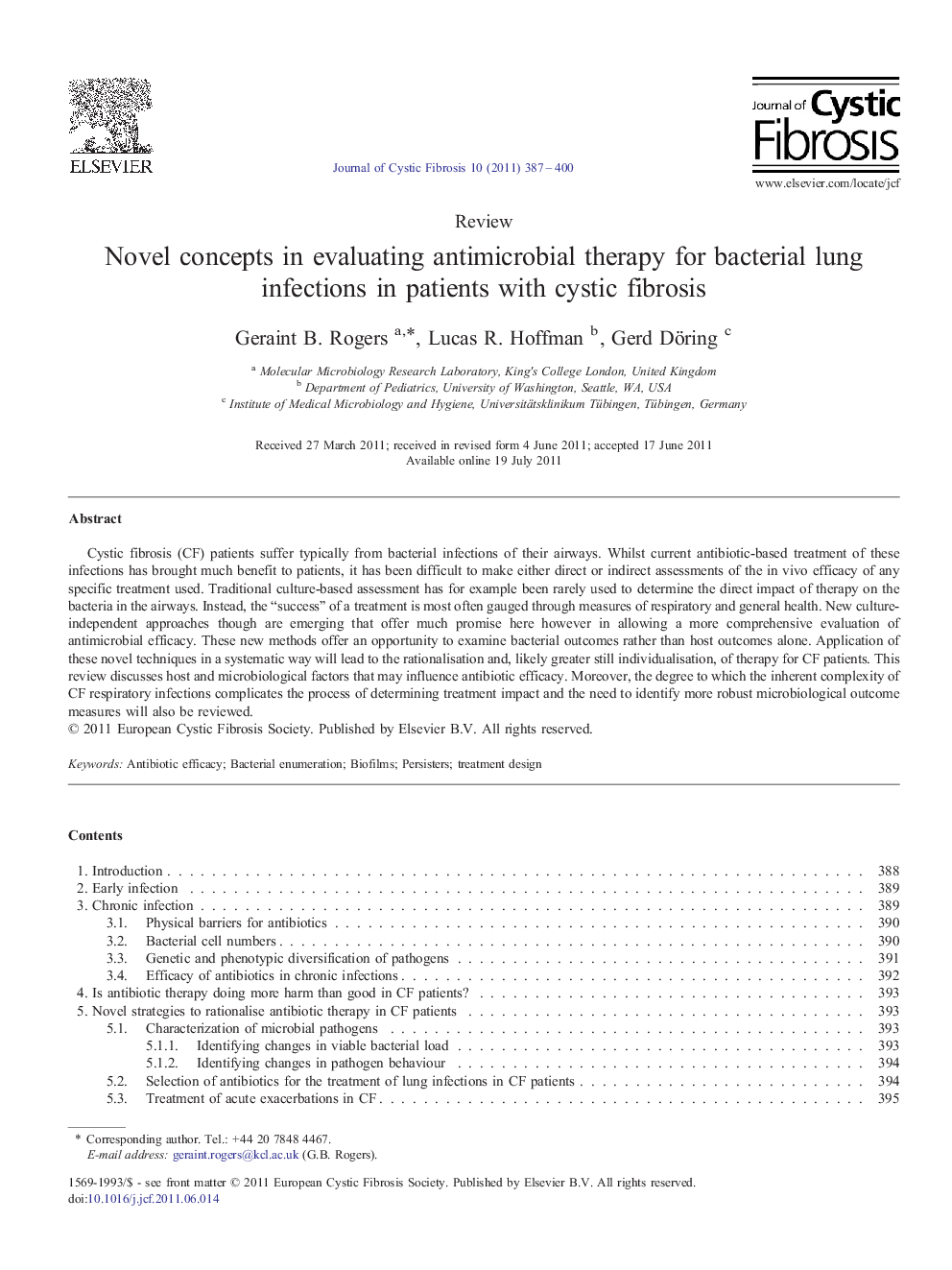| Article ID | Journal | Published Year | Pages | File Type |
|---|---|---|---|---|
| 4208394 | Journal of Cystic Fibrosis | 2011 | 14 Pages |
Cystic fibrosis (CF) patients suffer typically from bacterial infections of their airways. Whilst current antibiotic-based treatment of these infections has brought much benefit to patients, it has been difficult to make either direct or indirect assessments of the in vivo efficacy of any specific treatment used. Traditional culture-based assessment has for example been rarely used to determine the direct impact of therapy on the bacteria in the airways. Instead, the “success” of a treatment is most often gauged through measures of respiratory and general health. New culture-independent approaches though are emerging that offer much promise here however in allowing a more comprehensive evaluation of antimicrobial efficacy. These new methods offer an opportunity to examine bacterial outcomes rather than host outcomes alone. Application of these novel techniques in a systematic way will lead to the rationalisation and, likely greater still individualisation, of therapy for CF patients. This review discusses host and microbiological factors that may influence antibiotic efficacy. Moreover, the degree to which the inherent complexity of CF respiratory infections complicates the process of determining treatment impact and the need to identify more robust microbiological outcome measures will also be reviewed.
